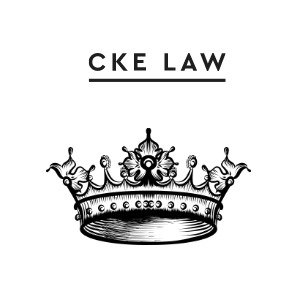Best International Trade Law Lawyers in United Kingdom
Share your needs with us, get contacted by law firms.
Free. Takes 2 min.
Or refine your search by selecting a city:
List of the best lawyers in United Kingdom
About International Trade Law in the United Kingdom
International Trade Law in the United Kingdom encompasses the rules and regulations governing trade between the UK and other countries. As a result of the UK's historical role in global commerce and its membership in various international organizations like the World Trade Organization (WTO), the UK has established a robust legal framework to facilitate and regulate international trade. This area of law addresses multiple issues, including tariffs, trade barriers, import and export controls, and dispute settlements. Following Brexit, the UK has had to renegotiate trade deals and adapt its legal apparatus to function independently of the European Union's regulatory umbrella, which has led to a dynamic and evolving legal environment.
Why You May Need a Lawyer
Individuals and businesses may find themselves in need of a lawyer specializing in International Trade Law in several situations. For instance, if a company is looking to expand its market by exporting goods or services, legal advice is essential to navigate the complexities of foreign market entry, regulatory compliance, and contractual agreements. Importers might need legal guidance regarding tariffs, customs procedures, and dealing with trade barriers. Companies involved in international shipping may face disputes related to shipping terms or breaches of contract. Furthermore, businesses impacted by trade legislation changes, such as those resulting from Brexit, may require legal consultation to ensure they remain compliant with new laws and regulations.
Local Laws Overview
Key aspects of local laws relevant to International Trade Law in the United Kingdom include:
- Customs Regulations: These outline procedures for the import and export of goods, including necessary documentation and tariff classifications.
- Trade Agreements: The UK is involved in various bilateral and multilateral trade agreements that establish the terms of trade with other nations.
- Export Control Act 2002: Governs the licensing of goods and technology transfers that could have military or security implications.
- Sanctions and Embargoes: The UK's compliance with UN and other international sanctions regimes on trade with specific countries or individuals.
- Dispute Resolution: Mechanisms available for resolving trade disputes, including arbitration and court proceedings.
- Consumer Protection Laws: Regulations ensuring products meet safety standards and consumer rights are upheld.
Frequently Asked Questions
1. What are the main trade agreements the UK is part of post-Brexit?
Post-Brexit, the UK has independently negotiated several trade agreements, including deals with Japan, Canada, and Australia, among others. The UK also seeks to join the Comprehensive and Progressive Agreement for Trans-Pacific Partnership (CPTPP).
2. How can I determine the correct tariff classification for products I want to import?
The UK Trade Tariff tool, provided by HM Revenue & Customs (HMRC), helps businesses find the correct commodity code to determine duties and VAT. Consulting with a trade lawyer can also ensure accurate classification.
3. What are the implications of violating international trade laws?
Consequences can range from financial penalties and trade restrictions to criminal charges, depending on the violation and relevant laws. Legal advice is crucial to avoid such outcomes.
4. How are trade disputes typically resolved?
Trade disputes can be resolved through negotiation, mediation, arbitration, or through litigation in courts or international trade bodies like the WTO.
5. What is a trade barrier and how can I overcome it?
Trade barriers are restrictions imposed by governments to regulate international trade. They can be tariffs, quotas, or non-tariff measures. A trade lawyer can help navigate and potentially challenge such barriers.
6. How does Brexit affect my business in terms of trade law?
Brexit has resulted in new trade agreements, regulatory changes, and customs procedures for UK businesses. Staying informed of these changes and seeking legal guidance is recommended.
7. Can I export any product I want from the UK?
No, certain goods are subject to export controls, requiring licenses due to their strategic importance or potential for harm. The Export Control Joint Unit (ECJU) oversees these regulations.
8. Is there insurance to cover trade-related risks?
Yes, trade insurance covers various risks, including non-payment by buyers and political risks. Legal advice can inform suitable insurance coverage tailored to your trade needs.
9. What are the roles of the WTO and the UK in global trade?
The WTO oversees global trade regulations and dispute resolution; the UK is a member and abides by WTO rules. The UK also negotiates its own trade agreements to facilitate international trade.
10. How do I ensure compliance with UK customs law?
Ensure that you understand the relevant regulations and requirements, including duties, documentation, and inspection procedures. Seeking professional legal advice can help you maintain compliance.
Additional Resources
Several resources are available to those needing assistance with International Trade Law in the UK:
- UK Department for International Trade: Provides guidance, tools, and support for businesses engaging in international trade.
- HM Revenue & Customs (HMRC): Offers detailed information and tools on tariffs, customs duties, and online services.
- Export Control Joint Unit (ECJU): Responsible for licensing exports and provides information on controls and regulations.
- British Chambers of Commerce: Offers a network of support and services for businesses involved in trade across the globe.
- World Trade Organization (WTO): A valuable resource for understanding the global trade framework and rule-based trade system.
Next Steps
If you require legal assistance in International Trade Law, consider taking the following steps:
- Identify Your Needs: Clearly define your trade-related issue or goal to narrow your search for specialized legal services.
- Research Legal Professionals: Look for lawyers or law firms with expertise in international trade law, verified credentials, and positive reviews.
- Consultation: Arrange for consultations with potential lawyers to discuss your case, understand their approach, and assess compatibility.
- Verify Credentials: Ensure your prospective lawyer is registered with the Solicitors Regulation Authority (SRA) and has relevant experience.
- Engage Legal Services: Once you've selected a lawyer, formalize the engagement with a clear understanding of the scope, costs, and terms of service.
By following these steps, you can secure competent legal assistance to navigate the complexities of International Trade Law in the United Kingdom, ensuring your business interests are well-protected and compliant with all relevant regulations.
Lawzana helps you find the best lawyers and law firms in United Kingdom through a curated and pre-screened list of qualified legal professionals. Our platform offers rankings and detailed profiles of attorneys and law firms, allowing you to compare based on practice areas, including International Trade Law, experience, and client feedback.
Each profile includes a description of the firm's areas of practice, client reviews, team members and partners, year of establishment, spoken languages, office locations, contact information, social media presence, and any published articles or resources. Most firms on our platform speak English and are experienced in both local and international legal matters.
Get a quote from top-rated law firms in United Kingdom — quickly, securely, and without unnecessary hassle.
Disclaimer:
The information provided on this page is for general informational purposes only and does not constitute legal advice. While we strive to ensure the accuracy and relevance of the content, legal information may change over time, and interpretations of the law can vary. You should always consult with a qualified legal professional for advice specific to your situation.
We disclaim all liability for actions taken or not taken based on the content of this page. If you believe any information is incorrect or outdated, please contact us, and we will review and update it where appropriate.
Browse international trade law law firms by city in United Kingdom
Refine your search by selecting a city.

















